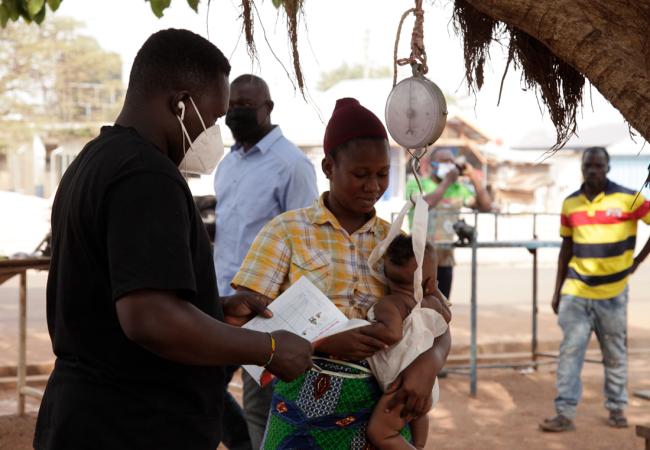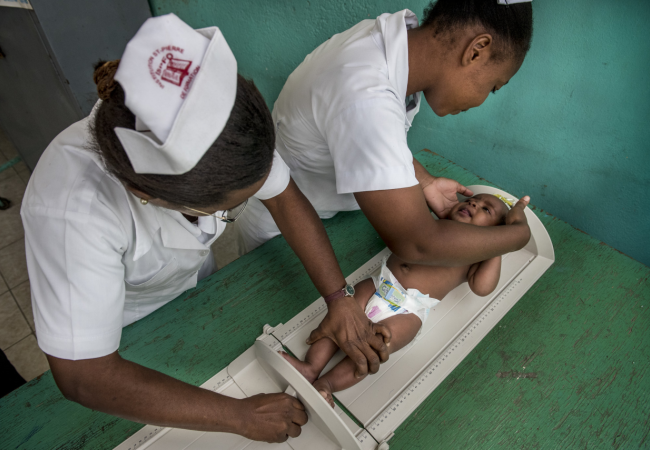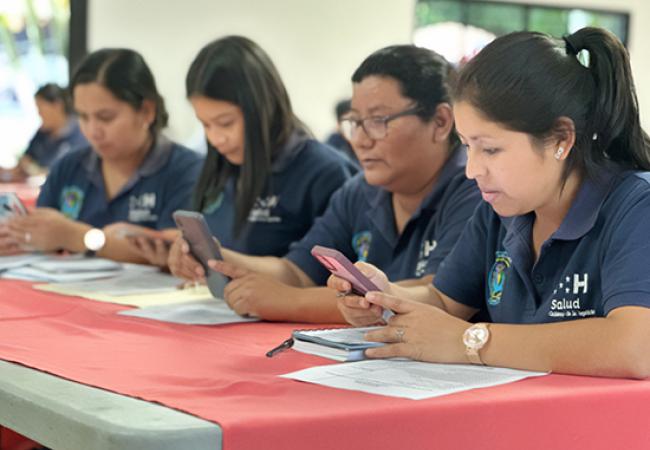
Globally, many countries use growth monitoring and promotion (GMP) as an entry point for preventive care and essential child health, nutrition and development services. Growth monitoring consists of the routine (ideally, monthly) assessment of growth, the pattern of change in weight and, sometimes, height/length. Growth promotion involves providing tailored counseling and referral, as needed, based on a child’s growth trend and unique circumstances.
Countries encounter challenges in measuring, recording, plotting, and interpreting indicators of nutritional status and growth, as well as in the promotion of tailored, feasible, and understandable actions. Despite these challenges, in 2018 global thought leaders, led by the Global Financing Facility of the World Bank Group, the United Nations Children’s Fund, the Bill & Melinda Gates Foundation, and The Manoff Group, reviewed the evidence, agreed that GMP should be improved and continued, and recommended a paradigm shift to renew and reposition the GMP (PDF, 119KB) model. They also called out the need to tailor GMP programs and activities to different development, geographic, and cultural contexts.
Strengthening Growth Monitoring and Promotion
To respond to this call, USAID Advancing Nutrition undertook a series of activities. We began by conducting case studies on GMP implementation in Northern Ghana and Nepal and published the findings in a manuscript. To identify actions to strengthen GMP, we held an expert consultation in 2022 where we shared the case study findings and discussed priorities for future research and programming. One of the recommendations of the expert consultations was to develop a learning agenda on counseling, a critical component of GMP that needs more attention and research. We drafted the learning agenda and solicited input during a 2023 convening of experts and a webinar hosted by the Child Health Task Force.
Digital Growth Monitoring and Promotion
During the 2018 convening, the global thought leaders recognized that digital tools hold promise to strengthen GMP. Since then, USAID, countries, donors, and implementing agencies have gained experience using digital tools for the delivery of essential services. Following the example set by the World Health Organization (WHO) with their SMART Guidelines and Digital Adaptation Kits, we developed a Guidance Package for Developing Digital Tracking and Decision-Support Tools (DTDS) for Growth Monitoring and Promotion Services. The Government of Nepal has begun to use the package to develop DTDS tools for the delivery of GMP services appropriate for their context.


